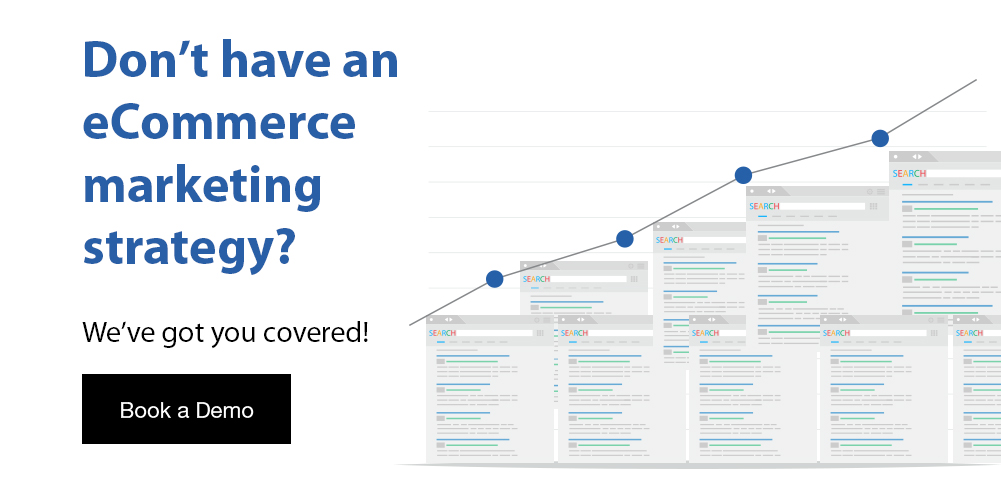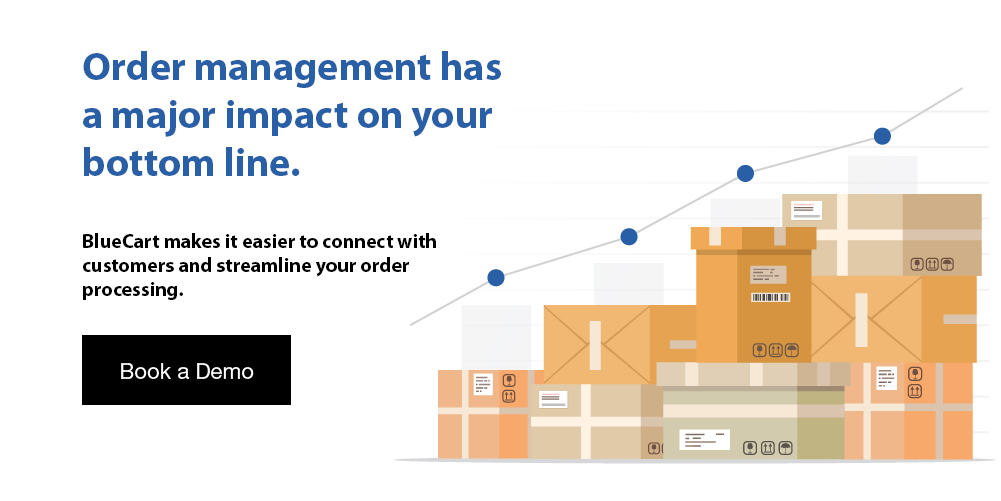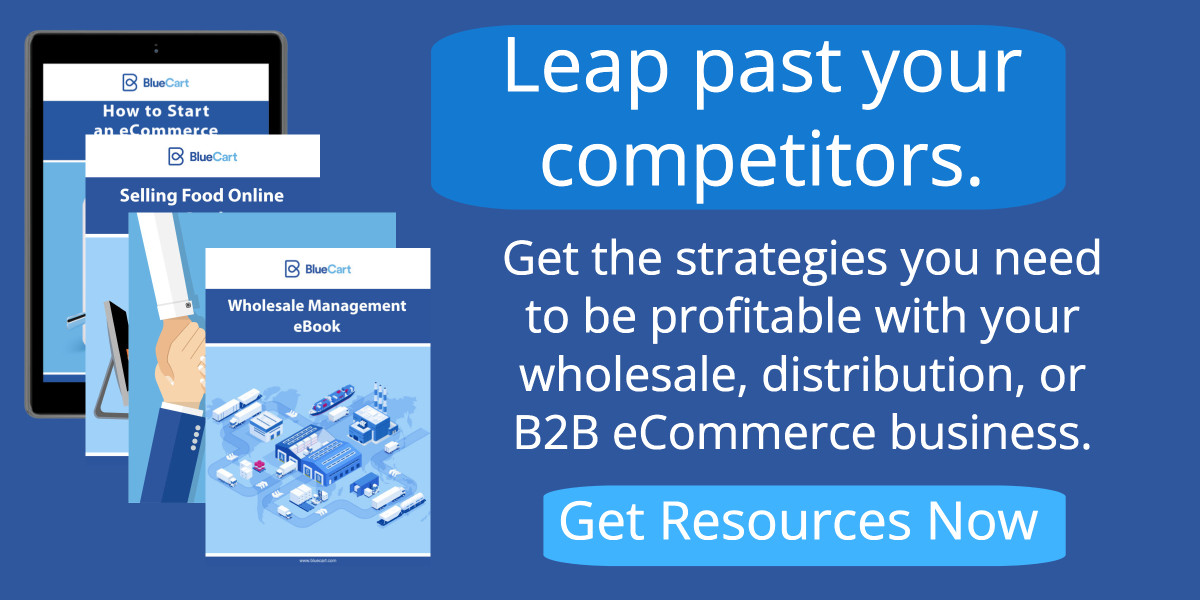Implementing omnichannel marketing means that B2B businesses can deliver quality omnichannel customer experience across their marketing and B2B sales channels. No wonder omnichannel strategy eCommerce is quickly becoming the latest buzz word in the eCommerce industry.
Consumers can now control where, when, and how they interact with wholesalers and retailers at different stages of their purchase journey. Unlike multichannel eCommerce where businesses focus on their inventory and high demand products, omnichannel strategies prioritizes the consumer by adopting eCommerce personalization campaigns.
However, the eCommerce supply chain is not complete without order fulfillment. Whether it’s multichannel vs omnichannel eCommerce fulfillment, delivering orders in a timely fashion is crucial to running a successful wholesale distribution business.
Key Takeaway: Omnichannel eCommerce fulfillment enables seamless channel switching so that customers can shop around, compare pricing, make purchases, and get their items via a variety of channels. In truth, omnichannel fulfillment is no longer a choice but a requirement for brands that wish to expand in a market where efficiency and profitability are important.
So, what is omnichannel order fulfillment and what are the benefits of omnichannel eCommerce fulfillment? Let’s find out!

What is Omni-channel Fulfillment?
The term "omnichannel fulfillment" refers to a strategy for completing orders that guarantees inventory is completely accessible through all channels including eCommerce, wholesale, and brick-and-mortar stores. Omnichannel fulfillment covers the entire fulfillment cycle, from the time an order is placed to when it is delivered.
To put it another way, omnichannel fulfillment is a strategy for enabling a seamless customer experience management across all channels. An omnichannel fulfillment strategy, in contrast to fulfilling orders from a single store, must distribute inventory for several stores and guarantee that products aren't over or under accounted for to avoid overselling and overstocking.
The entire process from when a consumer places an order to when the product is delivered to the end user is important. Omnichannel order fulfillment includes picking up, storing, eCommerce packaging, and timely delivery to the customer.
Basically, omnichannel fulfillment gives you the ability to automate, streamline, and speed up order fulfillment processes in order to improve customer happiness and raise your profits in today's fiercely competitive industry.
Customers can quickly search, order, and receive goods via their preferred channel thanks to the use of an integrated inventory control and tracking system, which enables firms to redistribute and reallocate inventory to numerous channels. As a result, companies are spared the expense of building separate order fulfillment infrastructures for each of their sales channels.
How Omnichannel Fulfillment Works
Omnichannel eCommerce fulfillment works in the following ways:
- Communication
Introducing your new capabilities to your consumer base is the first step in the process. If you don't tell people about your new products and services, they won't know how to use your omnichannel service, which you offer for both online and offline channels.
Here, you can explain to your clients all the advantages of using your omnichannel fulfillment service. Ensure that the seamless experience across a range of platforms and services is delivered as promised.
- Processing & Confirmation of Orders
Receiving and verifying a customer order is the next step. The only distinction between this phase and the typical order confirmation procedure is that the consumer can place an order on a mobile device, select the shipping method and cost, and know precisely when it will be delivered.
- Warehouse Management
In the third step, orders are filled immediately. In addition to warehouse fulfillment, this could also mean:
- Fulfillment by 3PL
- Inventory fulfillment
- In-Store order processing
These additional routes, which are different from typical methods of fulfillment, offer much-needed flexibility, guarantee that your consumers get what they want, when they want it, and keep you in compliance with your vendors.
It pays to use an inventory management system to keep stock of inventory. Warehouse management systems and wholesale distribution management software are also great to keep things organized.
- Shipping & Last-mile Delivery
The fourth process is shipping, which is also one of the most crucial ones because it makes use of sophisticated delivery management software to choose the best delivery method to satisfy client requirements like:
- Ship-from-DC/Warehouse
- Ship-from-3PL
- Ship-from-Store
- Ship-to-Store
- Ship-to-Partner

5 Benefits of Omnichannel Fulfillment
Businesses are more likely to grow their customer base through new channels and platforms when consumers have options in how they make purchases. For businesses that don't want to rely on a single channel or become complacent in a cutthroat industry, omnichannel fulfillment makes perfect sense.
Although there are many benefits to using this technique, the majority of B2B eCommerce business owners are drawn to it because it enables them to optimize for cost savings, raise customer satisfaction, and strengthen the resilience of their business.
Here are some other benefits of omnichannel order fulfillment:
- Improved Order Management
When ecommerce companies consolidate all of their selling channels into a single, synchronized platform, they are frequently astounded at how much simpler omnichannel fulfillment is made possible.
A more efficient order fulfillment process, including more effective packing and precise deliveries, results from this system's simplification. Additionally, improved order management ensures that cross-channel fulfillment is more consistent, reducing the need for constant troubleshooting.
- Better Reporting
Omnichannel fulfillment also has a lot to offer in terms of reporting accuracy. The success of your omnichannel approach will depend heavily on how well you manage the performance of your sales channels.
However, you can quickly manage all of your channels using real-time reporting provided by omnichannel software. Additionally, you may quickly review your eCommerce KPIs to find areas that need improvement.
- Increased Sales & Revenue
Perhaps stating the obvious, but you'll experience a spike in online orders when you optimize your ecommerce channels and make it easier for clients to purchase your goods. Customers will be more likely to return to your store if they know you will always have what they want in stock and ready to ship (rather than give their money to a competitor). So you can anticipate a significant increase in revenue by selling your products through a variety of channels.
- Better Brand Positioning
Customers expect access to your products at any time and from any location, which may seem like a hard task for a small business owner. However, selling on several websites and online marketplaces allows you the chance to reach a bigger audience of customers by promoting your brand (and your product listings).
The choice of in-store pickups, home deliveries, or in-person retail browsing is something that customers demand. If you want to keep up your established brand image, all of those channels need to be consistent.
- Improved Customer Retention & Experience
Businesses can combine their stocks for both online and offline sales channels using an omnichannel logistics approach, which unifies the entire process. This allows you to give customers unparalleled access to inventory across all channels, real-time tracking options, and speedy order fulfillment, resulting in a seamless shopping experience.
By using omnichannel fulfillment, you may send goods in a much smaller timeframe and retain a much wider SKU catalog. Hence, omnichannel solutions satisfy the requirements and preferences of customers. Greater customer satisfaction results in increased customer loyalty and higher sales as a result of better customer experience.

Frequently Asked Questions About Omnichannel Fulfillment
Here are some questions about omnichannel order fulfillment:
What is Omnichannel in Logistics?
Omnichannel logistics coordinates inventory, logistics, and distribution across sales channels to satisfy customer demand. All participants in the supply chain, including the retailer, manufacturer, distributor, and wholesaler, are involved.
What is Omnichannel Fulfillment Strategy?
Omnichannel fulfillment is a centralized method that enables organizations to efficiently carry out the order fulfillment process (accept, warehouse, process, pick, package, and ship customers' orders) across many channels.
What Does Omnichannel Mean in Supply Chain?
The term "omnichannel supply chain" refers to the process of integrating various warehousing or fulfillment activities, as well as sales and operating systems, in order to provide for both online and in-store demand simultaneously.